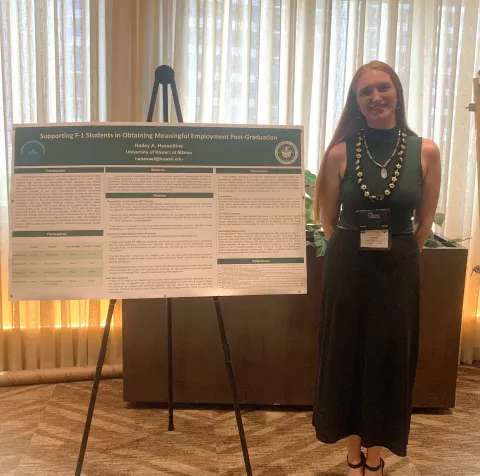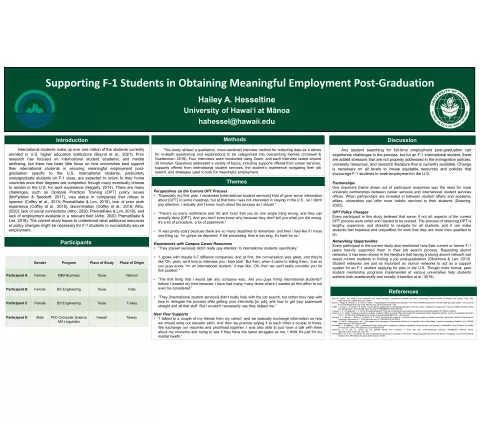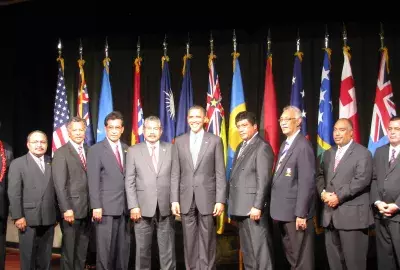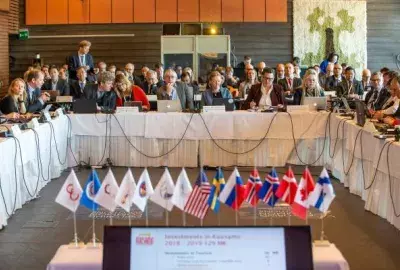Error message

OFFICE/DEPARTMENT
By Hailey Hesseltine
Each year, the United States hosts around one million international students, a population which can have a huge impact on local communities through their cultural, economic, and labor force contributions. The well-being of international students while attending US higher educational institutions has been the focus of much prior research, but little attention has been given to how universities support these students in securing US employment post-graduation. After their degree programs conclude, various international students opt to stay in the US for professional and economic opportunities that may not be available in their home countries. To stay in the US after graduation, F-1 visa students must secure employment within 90 days using Optional Practical Training (OPT), which can be a burdensome and confusing process. Due to shifting immigration policies and employer reluctance to sponsor visas, there is low utilization rates for OPT. Visa issues, lack of experience, discrimination, and a scarcity of relevant job opportunities create barriers for recent international graduates.
Opening dialogues between international students and international educators and administrators is one meaningful way to spark change in the resources colleges and universities provide for their international student populations. The voices of these students deserve to be considered in narratives regarding international student employment policies and highlight three main areas of concern.
Perspectives on the Current OPT Process
International students embarking on the OPT journey often find themselves grappling with a maze of regulations and procedures. As one of the four students interviewed described, “There’s so many restrictions and ‘ifs’ and ‘buts’ that you do one single thing wrong, and they can actually deny [OPT]. And you don’t know why because they don’t tell you what you did wrong. It’s a lot of procedure, a lot of paperwork.” Another student noted, “It was pretty scary because there are so many deadlines to remember, and then I feel like if I mess one thing up, I’m gonna be deported. If the processing time is too long, it’s hard for us.”
Experiences with Campus Career Resources
For a number of international students, campus career services fail to offer tailored support. One student lamented, “They [career services] didn’t really pay attention to international students specifically.” This disconnection becomes evident when conversations with prospective employers take an unexpected turn upon disclosing their international student status. As another student stated, “I spoke with maybe 6-7 companies, and at first, the conversation was great...but then, when it came to telling them...[I’m an international student], it was like, “Oh, then we can’t really consider you for this position.”
Near Peer Supports
Students find solace in creating their support networks. Sharing experiences, practicing interview skills, and proofreading resumes with peers provide a sense of camaraderie and shared struggle. As one student highlighted, “I talked to a couple of my friends from my cohort, and we basically exchange information on how we should write our elevator pitch. And then we practice saying it to each other a couple of times. We exchange our resumes and proofread together. I was also able to just have a talk with them about my concerns and trying to see if they have the same struggles as me. I think it’s just for my mental health.”
Building Solutions
These narratives reveal the challenges faced by international students in their search for employment. They underscore the need for change in the support structures provided by colleges and universities. After sharing these insights at the Region XII NAFSA Conference in Honolulu, Hawai‘i last month and gaining feedback from international educators, several solutions to better support our international students in finding employment post-graduation were determined:
- Invest in Campus Partnerships: Universities need to foster meaningful campus partnerships, such as between the international student services office and the career center. This investment would ensure that they receive specialized career resources tailored to their needs, thereby improving their chances of post-graduation employment in the US.
- Add Support through the OPT Process: The OPT application process can be overwhelming and stressful to many international students, making it crucial for universities and career centers to provide emotional support. Universities could create safe spaces where international students can find reassurance and guidance they need to navigate both US immigration policies and the American workforce. In today’s tight job market, this could prove to be a win-win for employers and students alike.
- Create Open Dialogue: A culture of open dialogue between international students and staff must be fostered. Engaging in conversations about students’ experiences, feelings, and curiosities about the job search process can lead to more informed and responsive support systems.
- Utilize Alumni Networks: Leveraging international alumni is an underutilized resource. Alumni networks need to be created that connect former international students to current international students to offer their expertise. Connections between alumni and students, facilitated through platforms like LinkedIn or Facebook, can offer valuable guidance and mentorship.
Educators, policymakers, and researchers in education share a responsibility to make sure students have the tools and knowledge necessary to succeed beyond the classroom. Equitable access to resources is key to this mission. Change must start by addressing how the current system is hindering students from attaining their educational and career goals. By addressing these challenges, we can foster a more inclusive and supportive environment, empowering these students to thrive.
Hailey Hesseltine is an EWC Foundation Scholar and a Master's student in Educational Administration at the University of Hawai‘i at Mānoa.
Top Photo: FatCamera/Getty Images
By Hailey Hesseltine
Each year, the United States hosts around one million international students, a population which can have a huge impact on local communities through their cultural, economic, and labor force contributions. The well-being of international students while attending US higher educational institutions has been the focus of much prior research, but little attention has been given to how universities support these students in securing US employment post-graduation. After their degree programs conclude, various international students opt to stay in the US for professional and economic opportunities that may not be available in their home countries. To stay in the US after graduation, F-1 visa students must secure employment within 90 days using Optional Practical Training (OPT), which can be a burdensome and confusing process. Due to shifting immigration policies and employer reluctance to sponsor visas, there is low utilization rates for OPT. Visa issues, lack of experience, discrimination, and a scarcity of relevant job opportunities create barriers for recent international graduates.
Opening dialogues between international students and international educators and administrators is one meaningful way to spark change in the resources colleges and universities provide for their international student populations. The voices of these students deserve to be considered in narratives regarding international student employment policies and highlight three main areas of concern.
Perspectives on the Current OPT Process
International students embarking on the OPT journey often find themselves grappling with a maze of regulations and procedures. As one of the four students interviewed described, “There’s so many restrictions and ‘ifs’ and ‘buts’ that you do one single thing wrong, and they can actually deny [OPT]. And you don’t know why because they don’t tell you what you did wrong. It’s a lot of procedure, a lot of paperwork.” Another student noted, “It was pretty scary because there are so many deadlines to remember, and then I feel like if I mess one thing up, I’m gonna be deported. If the processing time is too long, it’s hard for us.”
Experiences with Campus Career Resources
For a number of international students, campus career services fail to offer tailored support. One student lamented, “They [career services] didn’t really pay attention to international students specifically.” This disconnection becomes evident when conversations with prospective employers take an unexpected turn upon disclosing their international student status. As another student stated, “I spoke with maybe 6-7 companies, and at first, the conversation was great...but then, when it came to telling them...[I’m an international student], it was like, “Oh, then we can’t really consider you for this position.”
Near Peer Supports
Students find solace in creating their support networks. Sharing experiences, practicing interview skills, and proofreading resumes with peers provide a sense of camaraderie and shared struggle. As one student highlighted, “I talked to a couple of my friends from my cohort, and we basically exchange information on how we should write our elevator pitch. And then we practice saying it to each other a couple of times. We exchange our resumes and proofread together. I was also able to just have a talk with them about my concerns and trying to see if they have the same struggles as me. I think it’s just for my mental health.”
Building Solutions
These narratives reveal the challenges faced by international students in their search for employment. They underscore the need for change in the support structures provided by colleges and universities. After sharing these insights at the Region XII NAFSA Conference in Honolulu, Hawai‘i last month and gaining feedback from international educators, several solutions to better support our international students in finding employment post-graduation were determined:
- Invest in Campus Partnerships: Universities need to foster meaningful campus partnerships, such as between the international student services office and the career center. This investment would ensure that they receive specialized career resources tailored to their needs, thereby improving their chances of post-graduation employment in the US.
- Add Support through the OPT Process: The OPT application process can be overwhelming and stressful to many international students, making it crucial for universities and career centers to provide emotional support. Universities could create safe spaces where international students can find reassurance and guidance they need to navigate both US immigration policies and the American workforce. In today’s tight job market, this could prove to be a win-win for employers and students alike.
- Create Open Dialogue: A culture of open dialogue between international students and staff must be fostered. Engaging in conversations about students’ experiences, feelings, and curiosities about the job search process can lead to more informed and responsive support systems.
- Utilize Alumni Networks: Leveraging international alumni is an underutilized resource. Alumni networks need to be created that connect former international students to current international students to offer their expertise. Connections between alumni and students, facilitated through platforms like LinkedIn or Facebook, can offer valuable guidance and mentorship.
Educators, policymakers, and researchers in education share a responsibility to make sure students have the tools and knowledge necessary to succeed beyond the classroom. Equitable access to resources is key to this mission. Change must start by addressing how the current system is hindering students from attaining their educational and career goals. By addressing these challenges, we can foster a more inclusive and supportive environment, empowering these students to thrive.
Hailey Hesseltine is an EWC Foundation Scholar and a Master's student in Educational Administration at the University of Hawai‘i at Mānoa.
Top Photo: FatCamera/Getty Images
Web Article
Recent online articles and analysis that have been published on the East-West Center website.









